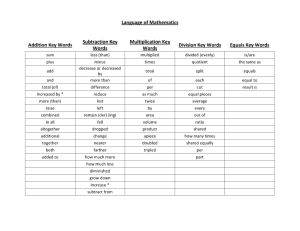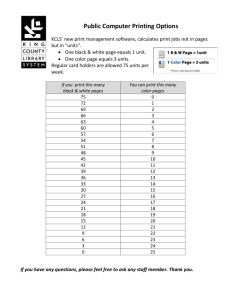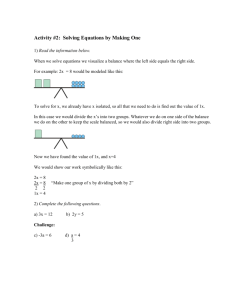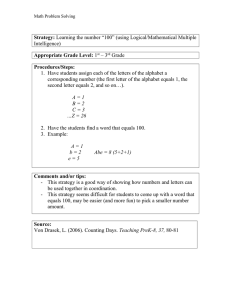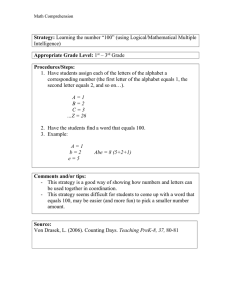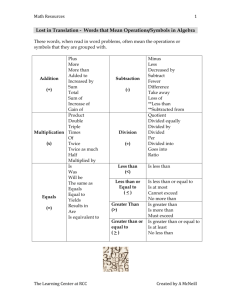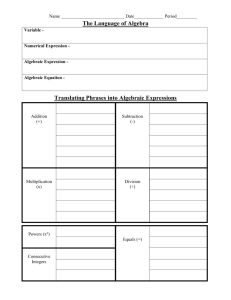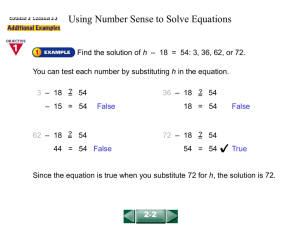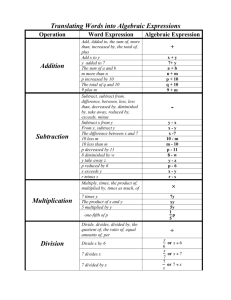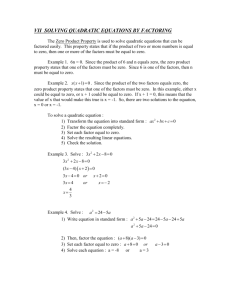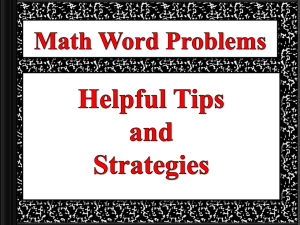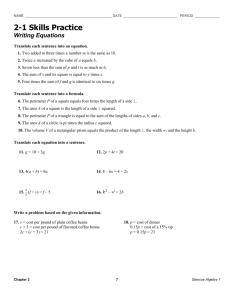Solving Equations Lesson 1 – Making Zero
advertisement
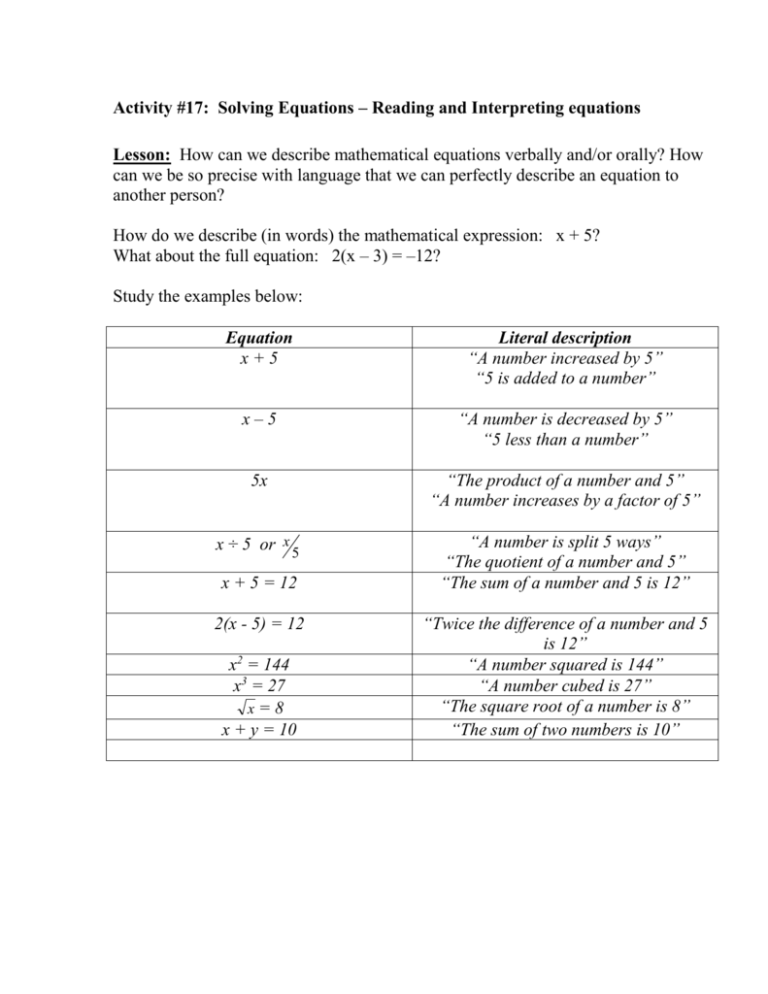
Activity #17: Solving Equations – Reading and Interpreting equations Lesson: How can we describe mathematical equations verbally and/or orally? How can we be so precise with language that we can perfectly describe an equation to another person? How do we describe (in words) the mathematical expression: x + 5? What about the full equation: 2(x – 3) = –12? Study the examples below: Equation x+5 Literal description “A number increased by 5” “5 is added to a number” x–5 “A number is decreased by 5” “5 less than a number” 5x “The product of a number and 5” “A number increases by a factor of 5” x ÷ 5 or x 5 “A number is split 5 ways” “The quotient of a number and 5” “The sum of a number and 5 is 12” x + 5 = 12 2(x - 5) = 12 x2 = 144 x3 = 27 x=8 x + y = 10 “Twice the difference of a number and 5 is 12” “A number squared is 144” “A number cubed is 27” “The square root of a number is 8” “The sum of two numbers is 10” Practice: Rewrite each of the following as an algebraic equation. Then, solve the equation. a) A number squared less nineteen equals two hundred six. b) Four and one-half times a number plus eight equals one and one-half times the same number less six. c) One-quarter times a number equals six-elevenths. d) Four times the quantity of a number less five equals seven times the quantity of the same number plus one. e) Four times a number is twenty f) A number increased by four gives twenty-one. g) The square of a number is twenty-five. h) A number decreased by ten equals two. i) Five less than a number is nine. j) The product of a number and six is twenty-four. k) The quotient of a number and ten is five. l) Three more than a number is eighteen. m) A number increased by seven is tripled giving twenty-two. n) Two less than five times a number is equal to negative eighteen
